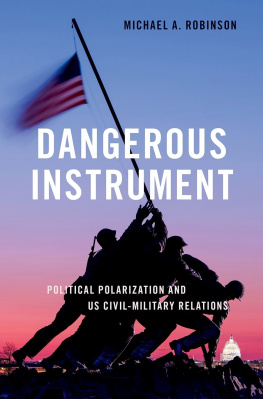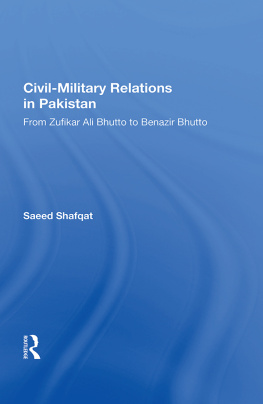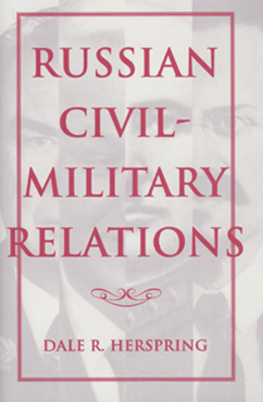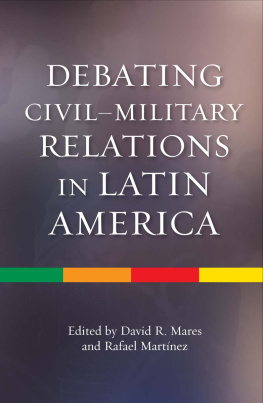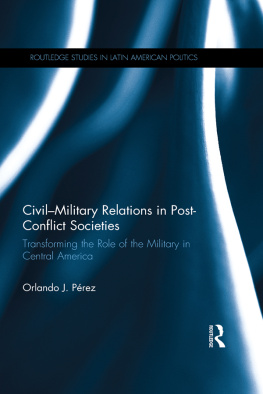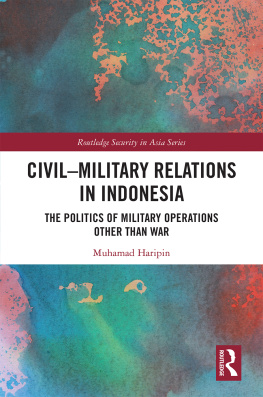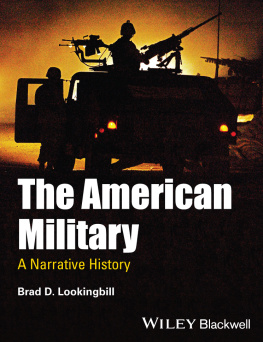Bridging the Gap
Series Editors
Goldgeier James
Jentleson Bruce
Steven Weber
Adaptation under Fire:
How Militaries Change in Wartime
David Barno and Nora Bensahel
The Long Game:
Chinas Grand Strategy to Displace American Order
Rush Doshi
Cyber Persistence Theory:
Redefining National Security in Cyberspace
Michael P. Fischerkeller, Emily O. Goldman, and Richard J. Harknett
War and Chance:
Assessing Uncertainty in International Politics
Jeffrey A. Friedman
Delta Democracy:
Pathways to Incremental Civic Revolution in Egypt and Beyond
Catherine E. Herrold
The Logic of American Nuclear Strategy:
Why Strategic Superiority Matters
Matthew Kroenig
Planning to Fail:
The US Wars in Vietnam, Iraq, and Afghanistan
James H. Lebovic
A Small States Guide to Influence in World Politics
Tom Long
Delaying Doomsday:
The Politics of Nuclear Reversal
Rupal N. Mehta

Oxford University Press is a department of the University of Oxford. It furthers the Universitys objective of excellence in research, scholarship, and education by publishing worldwide. Oxford is a registered trade mark of Oxford University Press in the UK and certain other countries.
Published in the US of America by Oxford University Press
198 Madison Avenue, New York, NY 10016, US of America.
Oxford University Press 2023
All rights reserved. No part of this publication may be reproduced, stored in a retrieval system, or transmitted, in any form or by any means, without the prior permission in writing of Oxford University Press, or as expressly permitted by law, by license, or under terms agreed with the appropriate reproduction rights organization. Inquiries concerning reproduction outside the scope of the above should be sent to the Rights Department, Oxford University Press, at the address above.
You must not circulate this work in any other form and you must impose this same condition on any acquirer.
Cataloging-in-Publication data is on file at Library of Congress
ISBN 9780197611562 (pbk.)
ISBN 9780197611555 (hbk.)
ebook ISBN 9780197611586
DOI: 10.1093/oso/9780197611555.001.0001
DOI: 10.1093/oso/9780197611555.001.0001
1 3 5 7 9 8 6 4 2
Marquis, Canada
For my Jojo
Contents
This book is the result of years of effort, brought into being only through the support and generosity of so many from whom I have been fortunate enough to learn. It is in this spirit that I offer the deepest gratitude to those who made this work possible, through their mentorship, instruction, and attention. It should be mentioned first the gratitude I hold for the support of my friends and family, without whom I would not be where I am. From this group, including my childhood friends back home, the love of my life, my close comrades in Army service, and my colleagues in the academic world came immeasurable inspiration and encouragement. Most of all I want to thank my mother, my father, and my brother, for the love and support that they have given me my entire life.
This project would not have happened without the teachers I have had along the way, both in and out of the classroom. For the formative influence they had on this project and my own academic aspirations, I offer special thanks to my Stanford doctoral committee members Mike Tomz, Scott Sagan, Kenneth Schultz, and Amy Zegart. I also wish to thank those who provided much-needed advice at critical points in the projects research design development, including Adam Bonica and Paul Sniderman. The collective patience and expertise of this incredible group of scholars is evident not only in the project that became this book, but in demonstrating to me the qualities of truly great teachers. In this spirit, I also offer the deepest of thanks to my colleagues, my outstanding graduate school cohortmates, and my CMR-ades in the civil-military relations scholarly community whose professional support and critical eye were integral to this project over the years.
Further, I owe a particular debt of thanks to the wonderful mentors in my career, from whose generosity, care, and attention I have benefited immensely. Chief among these are the leaders at the United States Military Academy Department of Social SciencesColonel Suzanne Nielsen, Colonel (ret.) Tania Chacho, Lieutenant Colonel Heidi Demarest, and Dr. Rob Personwho granted me the opportunity to go to graduate school, gave me the honor of teaching in front of cadets, and supported my continued efforts to think and write about the issues of the day, including the development of this book. Their counsel and encouragement speak not only to their character as mentors, but to the amazing culture they have created at SOSH, a true gem amidst both academia and the military enterprise.
To the ranks of these indispensable mentors I add several civil-military relations experts whose support and advice made this book possible. I thank Risa Brooks and Heidi Urben, both peerless scholars and mentors, whose generosity and advice at every step of the process kept this work (and its author) grounded. I also wish to thank Kori Schake, a two-time teacher of mine reaching back to my salad days as a cadet at West Point, who not only advised this project on committee but provided constant encouragement for its success. It would not be hyperbole to state that without them, this book would never have happened.
Finally, I want to thank those whose advocacy helped bring this project into being, including Peter Feaver, whose long-standing encouragement to junior scholars made this book a reality. I also want to thank Bruce Jentleson, Holly Mitchell, David McBride, Alexcee Bechthold, Thomas Deva, and the entire editorial team at Oxford University Press. I am similarly grateful for the constructive feedback and counsel of the anonymous reviewers whose critiques helped make this a better product.
To these individualsand to the many more too countless to nameI offer my thanks, in the hopes that the insights and prescriptions herein prove of value to military leaders, civilian officials, scholars, analysts, and the American citizen.
The views expressed are those of the author and do not reflect the official policy or position of the Department of the Army, the US Military Academy, the Department of State, the Department of Defense or any part of the US government.
the Army is a dangerous instrument to play with
George Washington, a letter a Alexander Hamilton, April 4, 1783
How do you politicize a military? At a glance, the answer in the American case may be just as Ernest Hemingway suggested one goes bankrupt: gradually, then suddenly. Indeed, both long-unfolding and recent trends are evident in the precarious future of American democratic traditions, reflecting a general loss of trust in their governing institutions. At the top, low confidence in bureaucratic and federal agencies has crystallized as partisan identity increasingly shapes perceptions of government performance. Among the public, cultural animosity and interpersonal tribalism have sharpened as that same partisanship alienates individuals from each other. The state of hyper-polarization that has invaded nearly every aspect of American political life has brought with it the threat of politicizing institutions that have traditionally remained outside the skirmishes of partisan politics. Even casual observers of politics are likely aware of the problem posed by such politicization. The maintenance of fair law enforcement establishments, independent court systems, and credible scientific communitiesto name a fewrelies on an institutional credibility that sets them apart from mere secondary partisan battlefields. The focus of this book concerns the struggle for non-partisanship among Americas most favored institution: the military.

